View count:
1507
Projects
| Supervisor | Affiliation | title & abstract | student | |
| 1 | Cheng-Wei Chiang email: chengwei@phys.ntu.edu.tw |
NTU | Title: Deep machine learning for collider physics | 姜理元 |
| Abstract: Through this project, the student will get familiar with using collider packages, such as MadGraph, Pythia/Herwig, and Delphes, to generate various collider events and learn how to analyze data. Starting with an exercise of using the convolution neural network (CNN) to classify events of hadronic decays of boosted weak gauge bosons (based upon an earlier work of mine: Phys.Rev.D 101 (2020) 5, 053001; 1908.08256 [hep-ph]), we plan to explore other neural networks to improve the classification accuracy. We then apply the technique to tagging new physics signals at the event level. | ||||
| 2 | Chuan-Ren Chen email: chuanrenchen@gmail.com |
NTNU | Title: Higgs Physics in ILC | 陳昱傑 |
| Abstract: ILC is built for precision measurements, including testing SM and exploring BSM. In this summer program, we would like to study precision measurements for Higgs decaying into b quarks, since ILC has the advantage of not having much QCD background as compared to LHC. Students will be trained to know about basic collider phenomenology, event generation, and some numerical studies. | ||||
| 3 | Chian-Shu Chen email: chianshu@gmail.com |
TKU | Title: A study on the neutrino mass generation at quantum-loop | 李冠賢 |
| Abstract: Tiny neutrino masses indicates new physics beyond the standard model. Various models can realize the dimension-five Weinberg operator, including tree-level mechanisms and quantum-loops corrections. In this project, students will learn a few famous models of neutrino mass generation and get his/her experience on model-building. In the meantime, students should also learn various experimental constraints in different aspects. If possible, he/she may try to cook a model of his/her own and learn how to compare with experimental constraints. | ||||
| 4 | Yasuhiro Yamamoto email: ph.yamayasu@gmail.com |
NCTS | Title: Neutrino mixing and future experiments | 姚勁宇 |
| Abstract: Neutrino mass is the last mystery in the Standard Model or the first discovery beyond the Standard Model. We have already known some mass differences and mixings, while the mass ordering and the CP phases are still unknown.They are investigated in the next decade by large volume liquid detectors and long distant injection, so called, the neutrino mixing experiments. In this project, we study the neutrino mixing based on quantum mechanics, differences in experiments, and reproduce the prospect of the neutrino parameter determination. Requirement: English to communicate with me; some basics of statistics, programming, and quantum mechanics are helpful, but the level is adjusted to the student Keywords: Neutrino mixing, Numerical analysis |
||||
| 5 | Hugues Beauchesne email: cpliu@mail.ndhu.edu.tw |
NCTS | Title: On the possibility of complementing weak supervision searches at the LHC with fully supervised training | 賴姿佳 |
| Abstract: Machine learning is now an integral tool in searches for physics beyond the Standard Model at the LHC. Supervised training, while potentially very powerful, introduces the risk that neural networks will be sensitive to simulation artifacts or be insensitive to new signals that deviate from our expectations. As such, searches were proposed and performed using weak supervision on the data itself. In practice, these searches must be able to learn from very few signals, else an excess would have already been discovered by traditional searches. This puts serious limitations on cases where weak supervision can be used. In this project, we seek to study the possibility of complementing weak supervision with fully supervised training. Three approaches are proposed: Pre-training on simulated data, using a neural network trained on simulations as a weak classifier and synthetic data augmentation. | ||||
| 6 | Guey-Lin Lin email: glin@nycu.edu.tw |
NYCU | Title: Particle scattering as an integral transform and applications of this viewpoint to dark matter and neutrino detections | 廖敏媛 |
| Abstract: The recoil momentum distribution of the target particle hit by dark matter (DM) has been described by a three-dimensional Radon transformation and the inverse transformation useful for reconstructing DM velocity distribution has been derived as well [1]. In this project we like to generalize this transformation to the case of neutrino scattering and derive its inverse transformation. The advantage of this inverse transformation in data analysis will be explored. [1] P. Gondolo, Phys. Rev. D 66 (2002), 103513 [arXiv:hep-ph/0209110 [hep-ph]]. |
||||
| 7 | Cheng-Pang Liu cpliu@mail.ndhu.edu.tw |
NDHU | Title: Precision Tests of the Standard Model and Searches for New Physics with Atoms and Nuclei |
周立穎 |
| Abstract: Built on the foundation knowledge that is covered in the mini-course, in particular the parts of QED and electroweak theory, the project aims at introducing the very active current research of elementary particle physics using atoms and nuclei -- the so-called precision or intensity frontier. Students can select one or more topics of their interests in broad subjects including, but not limited to, atomic parity violation, electric dipole moments, nuclear beta and double beta decay, neutrino-nucleus scattering, dark matter direct searches etc. | ||||
| 8 | Chuan-Hung Chen email: physchen@mail.ncku.edu.tw |
NCKU | Title: Study of top-quark flavor changing neutral currents | 古祐瑋 |
| Abstract: Flavor-changing neutral current (FCNC) top-quark decays are highly suppressed due to the Glashow-Iliopoulos-Maiani mechanism in the standard model (SM). In this project, we are going to understand what the GIM mechanism is and how the FCNCs in the SM are suppresed. We are trying to build a model which can enahnce the rare top-FCNC processes and see if the new pshyics can be probed in LHC or HL-LHC. |



